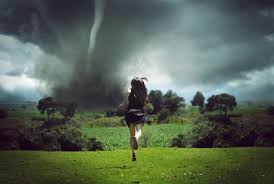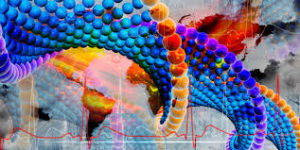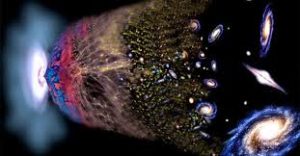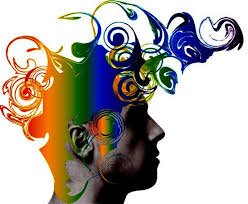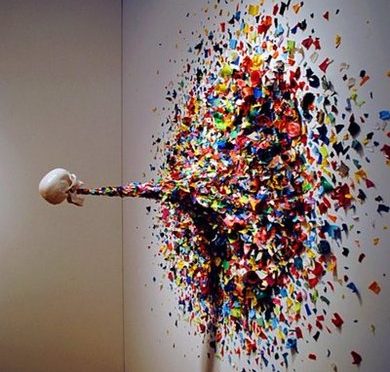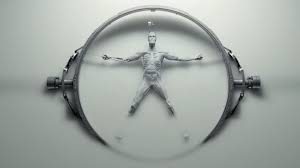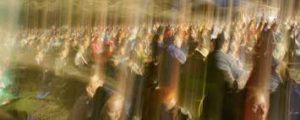Many psychiatrists and psychologists now realize that a disturbed client cannot be helped sufficiently unless the individual is considered along with his or her relationship to the family, and also in relation to the environment. Old-time family doctors understood the patient’s sensitivity to family members and to the environment, of course, and they often felt a lively sympathy and understanding that the practitioners of modern medicine often seem to have forgotten.
I am speaking of a deeper relationship to the environment, however, and of the environment’s symbolic as well as practical aspects in relation to health and illness. Our ideas about our own body, our mind, the universe, and our part in it, and our state of health, to our sense of well-being, or our feelings of dis-ease.
In my next blog, I would like to look more specifically at the importance of symbolism in our minds, our body, and our environment.
Modern medical science largely considers the human body to be a kind of mechanical model, a sort of vehicle like a car that needs to be checked by a garage every so often.
As an automobile is put together at an assembly line, so the body is simply seen as a very efficient machine put together in nature’s “factory.” If all the parts are in their proper places, and functioning smoothly, then the machine should give as excellent service as any well-running automobile — or so it seems.
All of the automobile’s parts, however, are alone responsible for its operation as long as it has a responsible driver. There are, however, hidden relationships that exist between various parts of the body — and the parts themselves are hardly mechanical. They change in every moment.
With the latest developments in medical technology, there are all kinds of heart treatments and operations that can be performed. Healthy hearts will maintain a consistent heartbeat, whereas unhealthy hearts may experience some irregularity in their rhythm. There are supplements like lypo spheric vitamin c that can help lower the risk of heart-related issues like heart disease and lower blood pressure. The risks can also be prevented by consuming different types of plums and other such fruits/vegetables that contain the phytochemicals and nutrients required to reduce inflammation. Still, just like with anything health-related, if these issues continue despite taking necessary measures, it would be beneficial to visit a doctor to get checked professionally. Anything related to the heart can be dangerous, but can sometimes be treated by some medical equipment, such as the Philips Heart start and m5070a battery which can help to shock the heart into a normal rhythm. There is some heart equipment that is small, and there are also more serious treatments that can be used, such as heart transplants. In many cases, even when hearts are repaired through medical technology, the same trouble recurs at a later date, or the patient recovers only to fall prey to a different, nearly fatal or fatal, disease. This is not always the case, by any means, but when such a person does recover fully and maintains good health, it is because beliefs, attitudes, and feelings have changed for the better and because the person “has a heart” again, in other words, because the patient himself or herself has regulated the will to live.
Many people who have heart trouble feel that they have “lost the heart” for life. They may feel broken-hearted for any of many reasons. They may feel heartless or imagine themselves to be so cold-hearted that they punish themselves literally by trying to lose their hearts.
With many people having such difficulties, the addition of love in the environment may work far better than any heart operation. A new pet given to a bereaved individual has saved more people from needing heart operations than any physical. In other words, “a love transplant” in the environment may work far better overall than a heart-transplant operation, or a bypass, or whatever; in such ways, the heart is allowed to heal itself.
In later blogs, we will discuss more thoroughly distorted ideas about the self and the body in particular that stand in the way of natural exuberance and good health.
Without going more deeply into the reasons for such beliefs until later, let me discuss several of the ways in which they impede general well-being. Right now it is socially fashionable to take up some kind of exercise, gym work, or strenuous sport, so it seems obvious that the general populace must have great regard for the physical body. Unfortunately, large segments of the population feel uncomfortable with their bodies and do not trust the body’s spontaneity, strength, or overall dependability. They have been taught that medical science knows more about bodies than any private individual knows about their own bodies and their ways and workings.
People have been taught to trust X-rays for a picture of what is happening within their bodies and cautioned not to trust their own feelings. Some public-service announcements stress the “fact” that the individual can be gravely threatened by high blood pressure, for example, even though he or she feels in excellent physical health.
The populace has embarked upon this strong exercise program because of a mixture of very unfortunate beliefs. Since they feel divorced from their bodies, many people suspect what is going on inside. Some religious beliefs suggest that the body is impure, and the heir to disease and infirmity. Often people exercise over-zealously to punish their bodies, or to force the body to respond at its best since they do not trust it to do otherwise.
In many instances, people exercise and clean their teeth quite simply because they are afraid of what will happen if they do not. Professionals at McCrae Dental Surgery or places similar know that poor oral health can contribute to heart disease and often suggest these actions to reduce the likelihood of this eventuality. They may run or brush to avoid heart disease, for example, while their own fear can help to promote the very eventuality they fear.
The body’s health is the expression of inner well-being. Poor health is an expression also, and it may serve many purposes. It goes without saying that some people become ill rather than change their activities and their environments. They may also become ill, of course, to force themselves to make changes.
I do not mean to imply that exercise is detrimental to good health. It is true, however, that the reason that we exercise is actually more important than the exercises that we do perform. The reason can promote our good health or actually impede it.
Thus far in my blogs, we have begun to touch upon the multitudinous issues involved in good health or in its absence. Before we are finished we hope to give a far greater framework in which to consider our own well-being and the many options that are open to any individual. We will discuss the species connected with a long, healthy, fairly happy lifetime, and those involved with early death, severe illnesses, and suicide — particular with the suicides of fairly young persons.
Earlier we spoke about the incredible impulse on the part of all of nature toward exuberance and well-being. It is as if nature always tries to exceed itself, and certainly to increase the quality of its existence. The individual person is also involved in an ever-continuing process to increase the quality of life as it exists at all levels of personal experience. Reality is so constructed that each individual seeking fulfillment does so not at the expense of others, but in such a way that the quality of life is increased for all.
Each person impulsively tries to grow into his or her sensed potentials — even when they are not immediately apparent.
In one way or another, each segment of consciousness is aware of each other segment, through an instantaneous communication that exists on many levels. It is important that our ideas circulate freely, and that the ideas of the peoples of the world circulate freely, just as it is important that our individual body has good circulation. Our ideas about our own health are even more important than those steps we take to promote it.
Our ideas about foreign countries, allies, and enemies, also have a vital role to play in how we handle our own bodily defenses. People who are afraid that their nation will be invaded by an enemy will often also consider viruses or diseases to be enemies, ever about to threaten their personal survival. Such attitudes will, of course, be detrimental to feelings of well-being, health, and exuberance. While it is true that medical technology has many serious defects, it is also true that many people believe in the medical profession to such a degree that it would be nearly impossible for them to survive in good health without it.
In later blogs, we will also discuss the ways in which we can use our own beliefs about the medical profession to reinforce our overall sense of health, rather than to undermine it.













